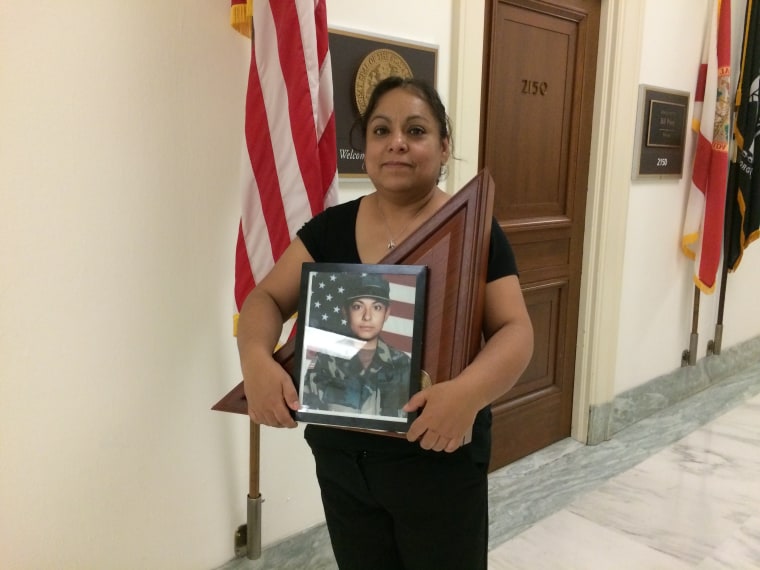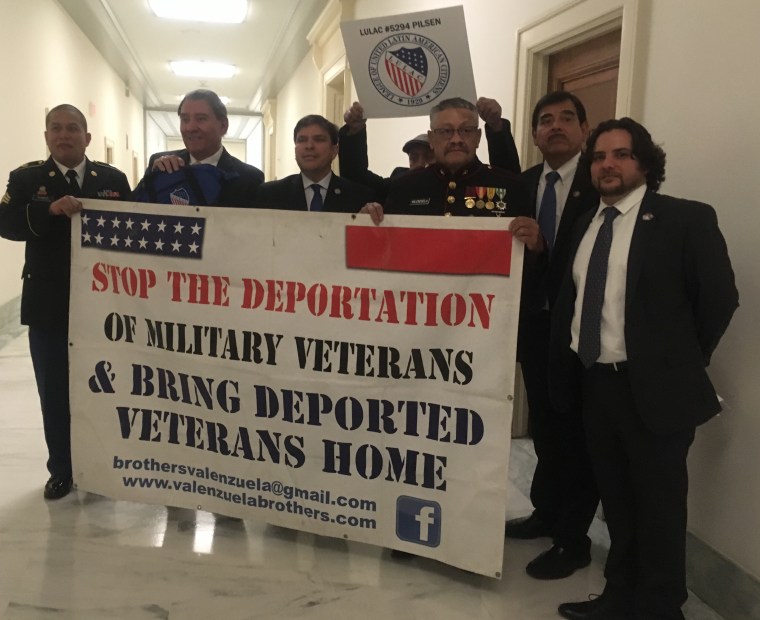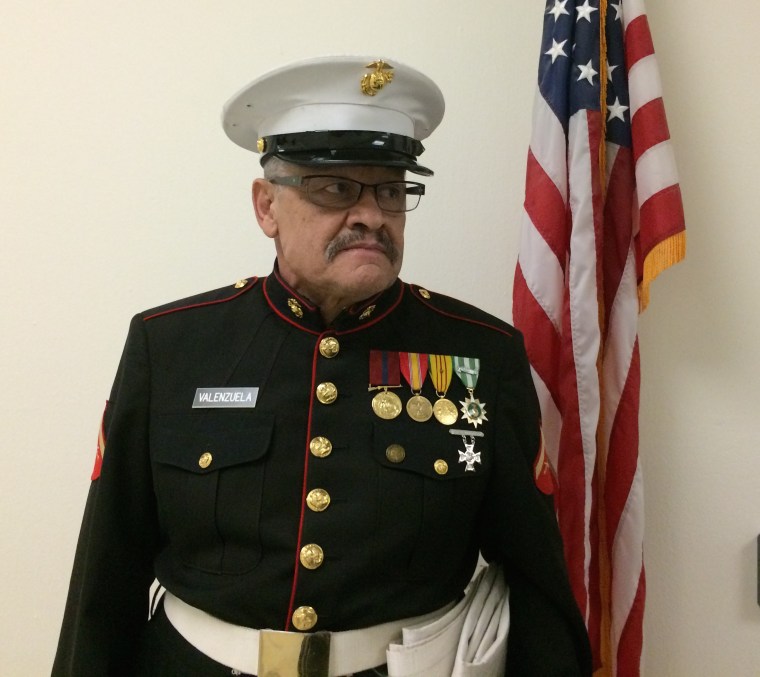WASHINGTON — Olivia Segura hauled her daughter's photo and the distinctive triangle-shaped wood box holding the flag that draped her daughter's coffin and through the hallways of the building where members of Congress have their offices.
At any point, it seemed the box and photo would slip from her arms. But Segura clutched both tightly, because, she said Tuesday, "the only way to deal with my pain" is to make public that the country now wants to deport her husband, Alberto Segura — the father of a young woman who died serving her country.
"Mr. Trump says he is there for citizens and for the military," Segura said. "I think he can make an exception."

The Seguras' daughter, Ashley Sietsema, was a member of the National Guard who was serving in Kuwait when she was killed on Veterans Day 2007.
A medic, she was driving an ambulance, transporting a soldier between bases, when the ambulance was ambushed by civilians. She was killed in the rollover. Her body was too damaged for an open casket, Segura said.
Segura said her daughter's death took a toll on her marriage. She and her husband blamed each other. Then her husband blamed himself and began drinking, because he had persuaded Sietsema to join the Guard. He was picked up in 2010 on a drunken driving charge, which revealed a previous arrest for a $20 drug purchase when he was younger.
"It is hard for people to understand. To everyone, she was a soldier. For us, she was our universe," Segura said.
Segura, other veterans and veterans' families met with members of the Congressional Hispanic Caucus on Tuesday hoping for exemptions from deportation for veterans who are legal permanent residents and their families, particularly for Gold Star families — families of military personnel killed in action.
There's no count on how many veterans or their relatives are deported. Groups have been trying to raise attention to the veterans' plight and tried to use it as an issue during the presidential campaign.
Related: Group Wants Veterans' Deportations Addressed in Presidential Debate
It's uncertain whether they will get any relief, even though caucus members said they were working on legislation to help the veterans and their families.
Although those who gathered Tuesday gor deportation orders under the administration of former President Barack Obama, there was a priority system for deportations at the time. Trump has signed an executive order doing away with that priority system.

Although Trump has said he would focus on criminals, his order vastly expands the definition of a criminal. It allows the removal of people without convictions and of people who have committed acts that would constitute a crime.
The order also gives wide discretion to immigration officers to remove someone who, in their view, poses a risk to public safety or national security. In addition, Trump's order is returning to use of local officials to target immigrants and undocumented or legal permanent residents.
But Rep. Luis Gutierrez, D-Illinois, said relief for the families remains possible, despite the current political environment.
"I've never seen the broadening of support for immigrant and immigrant issues as I have in recent weeks," Gutierrez said. "You saw, in dozens of airports, tens of thousands of people come out. For the most part, you'd see brown faces, Hispanic faces out there.
"These are some of the most compelling arguments you can make for what's wrong with our immigration system," he said.
Some of the veterans being deported are legal permanent residents who become deportable after they commit a crime categorized as a felony under immigration law or because a conviction from their past emerged.
Legal permanent residents serving in the military are eligible for expedited citizenship, and the government has been processing legal permanent residents during boot camp.
According to advocates for the immigrant veterans, soldiers who are legal permanent residents are not always connected with the naturalization process — or even made aware of it. For some, their service does little to help their families remain in the United States.
Related: Which Side Is Donald Trump On in The Fight Over Legal Immigration?
Ricardo Pineda, 47, served six years in the Army, including in Korea. He and his son, Juan Pablo, are U.S. citizens, but his wife, Veronica, has received a deportation order.
When Veronica came from Mexico, she tried to use a visa belonging to someone else, Pineda said. If she has to leave, he and his son must, as well. His son suffered brain damage, and Pineda was medically discharged from the Army.
"She's my caregiver. She's my son's caregiver," Pineda said.
"People don't know, but there's a lot of families with this issue," Pineda said. "Active-duty soldiers can't talk about it, or they'll get kicked out."
In some cases, the immigration specifics are not so clear cut.

Jesus Manuel Valenzuela 74, of Colorado Springs, was a lance corporal in the Marines. In 2009, he received a notice that he was to be removed from the country based on an arrest more than two decades ago on a misdemeanor drunk and disorderly charge.
He was at a birthday party for a girlfriend at a bar, had too much to drink and was jailed overnight. He said he did 20 hours of community service.
As he began fighting the deportation, he learned that his mother was born in Loving, New Mexico, so even though he was born in Mexico, he has citizenship through her and is now trying to fight the removal.
"We served this country, too," Valenzuela said. "When I was 19, I raised my hand."
